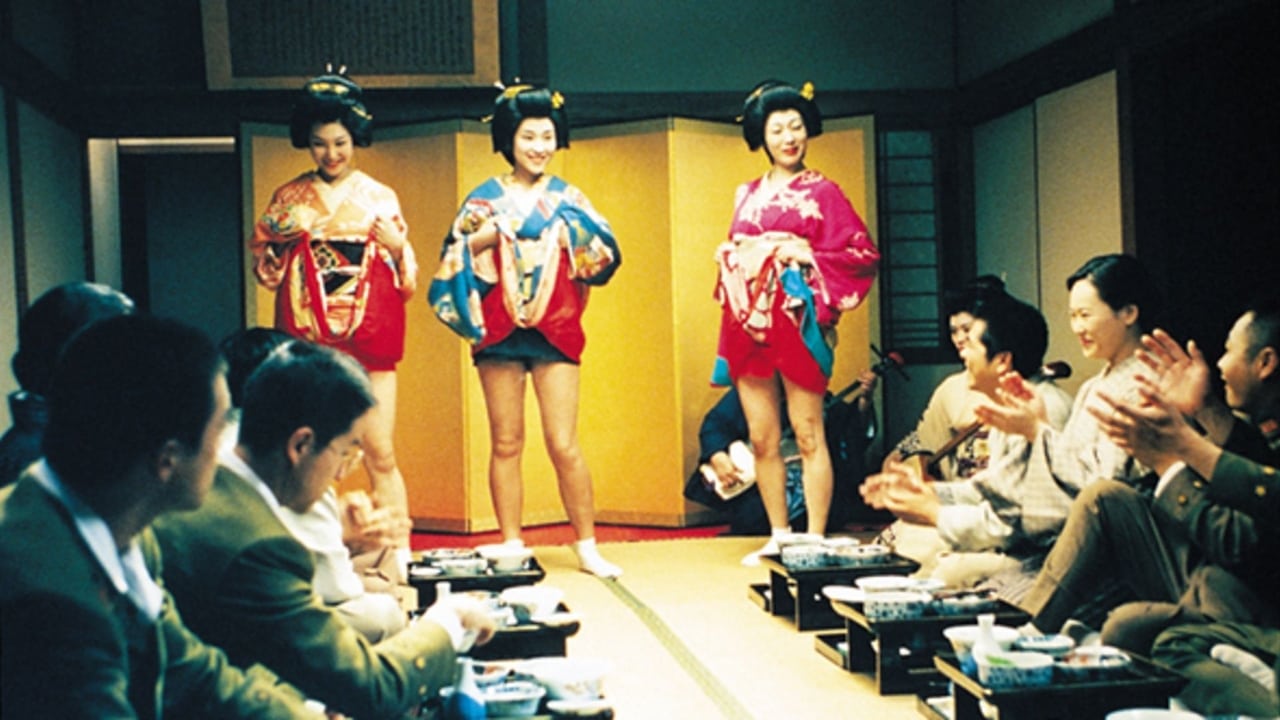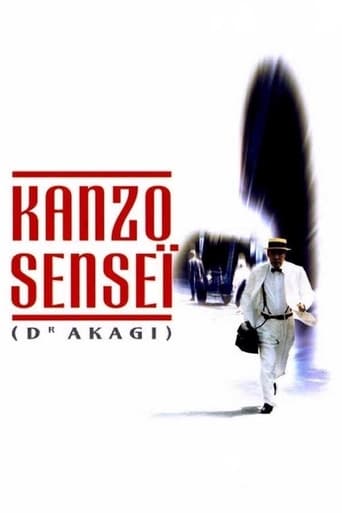

Vengeance of Mine was my first exposure to Shohei Imamura, a tautly amazing movie full of dark humor, fearful violence, sexual tension and deep questions about life (note: this movie, among any other, absolutely deserves to be released on DVD). Dr. Akagi explores many of the same themes from the angle of a more dignified and admirable protagonist, a widower physician in a small fishing village whose life work is to tend to the many locals who are falling ill with hepatitis, a disease whose pathology and means of transmission are not yet understood. It also presents an interesting view of wartime Japan in a village removed from the immediate devastation of the war, how life goes on as it typically does but with the war slowly intruding more and more into the people's daily lives until it literally explodes above their heads. The director's great talent, in my opinion, is how he never judges his subjects, whether because the person is a whore, a morphine addict, an embezzler, a dissolute drunkard or pervert. He depicts them as they are. The characters and situations depicted in this movie seem to me very authentic representations of the Japanese character, in its multiplicity, and that's part of what makes it a delight to watch. Dr. Akagi is the most intriguing one of all the characters, as he goes through not one but two personal transformations in the movie that are so subtle at first that you fail to notice them until the movie comes together neatly at the end yet leaves the question, what motivates us to do the things that we do in life, what's our purpose in life and what keeps us alive. Of course, the answer is never clear, and the movie does not shy from that reality. The cinematography is also very nice, especially the scenes with the whale at the end which are simply beautiful and imbued with mythos in a scene in which director wonderfully transforms the village whore and daughter of a fisherman into the mythical woman that reawakens Dr. Akagi to his life. Beautifully done. Only complaint: the jazz soundtrack is a bit overly intrusive and excessive. That should have been toned down a bit, but otherwise, a very moving and poignant film.
... View MoreThis film gives a fascinating look at life in Japan in the last months of WWII. Dr. Akagi brings a sense of humanity and compassion in an otherwise tired and spiritually bankrupt country. So, while the people are either giving up or shouting jingoistic sayings and insisting the war is NOT lost, he just goes about his job saving lives and crusading within the government for more attention and funding for the Hepatitis outbreak. Throughout the film he is tireless and decent. However, along the way, there are a lot of detours and other characters--some that work and some that tend to distract (such as the scene involving the prostitute and the whale)--taking this movie from a score of 8 or 9 and dropping it to 7. Nevertheless, it's still an excellent film and well worth your time--giving unusual historical insights.PS--an excellent companion film to this would be FIRES ON THE PLAIN (1959). This film shows Japanese soldiers in the Phillipines just before the country falls to the Americans. It shows the end of the war through the viewpoint of very tired, hungry and broken soldiers.
... View MoreImamura Sohei's Kanzo Sensei (Dr Akagi) is reminiscent of Kurosawa Akira's Drunken Angel (Yoidore tenshi). In Kanzo Sensei, Dr. Akagi struggles with the disease that exacts heavy tolls on the Japanese during wartime. There is the sense that the onset of the disease is almost karmatic; people should know to eat well and sleep well, butbecause of the country's involvement in the warare only allowed to do so when they are diagnosed with hepatitis. The patients make the "best of it," getting their basic human psychological and physical needs met. Relaxation and rest brings people back to their human essence and reclaims their health. The sickness is likened to a psychological sickness"hepatitis of the mind." We see this in Masumura Yasuzo's Kyojin to gangu (Giants and Toys) where the Japanese have been taken over by the Western principles of capitalism and consumerism. In Yoidore tenshi, the benevolent doctor is somewhat over concerned for his patient, who suffers dually from hepatitis and alsoas a yakuzafrom the cesspool that Japan has become after the occupation. In both Kanzo Sensei and Yoidore tenshi, the doctor is more of a symbol of the medicinal power of compassion; deeply concerned for their patients, the doctors provide not surgery but the common-sense advice to sleep well and maintain a good dietto understand how society is plagued.
... View MoreImamura Shohei has come in to his prime at a point when most directors of his age begin their downward spiral. Along with his completely different although equally impressive film, "Unagi (the eel)" (1997) Imamura has made two of the greatest films of the 1990s. This particular entry into the Imamura canon deals with a Kyushu doctor during WWII. Of course, the film goes way beyond just that; it's a film that cannot be summed up in words, it's the kind of movie that you sit back and enjoy and you come out of smiling, for you've been entertained in a way most films cannot. "Kanzo Sensei" affects like a truly satisfying book does, something most films cannot come close to copying. If you dig it, rent "the eel" and look out for his next work coming soon to a theatre far from you and me--Japan. Let's hope his next one is as good as his last two, and that it is released in theatrically in the US. Highly recommended.
... View More